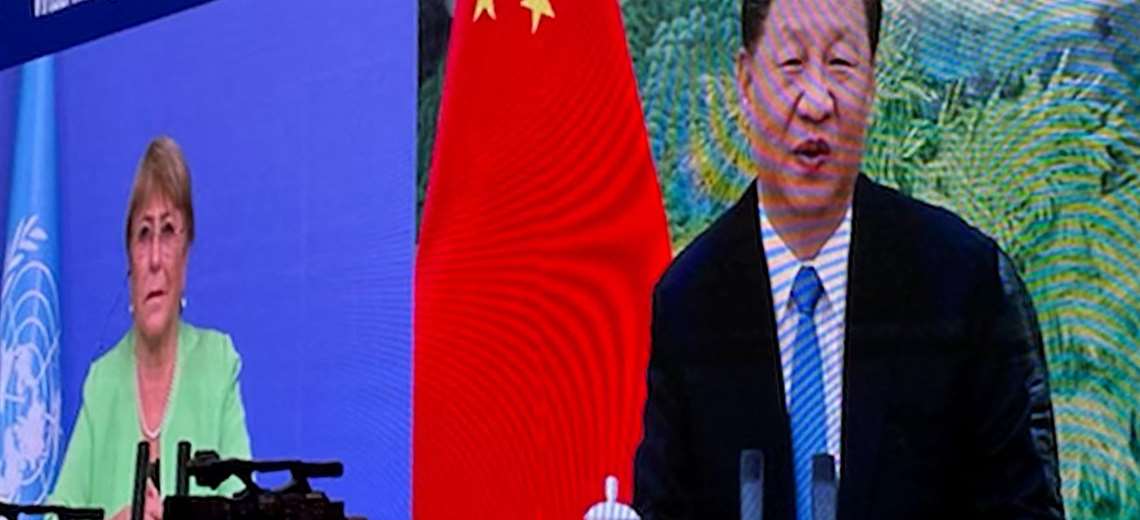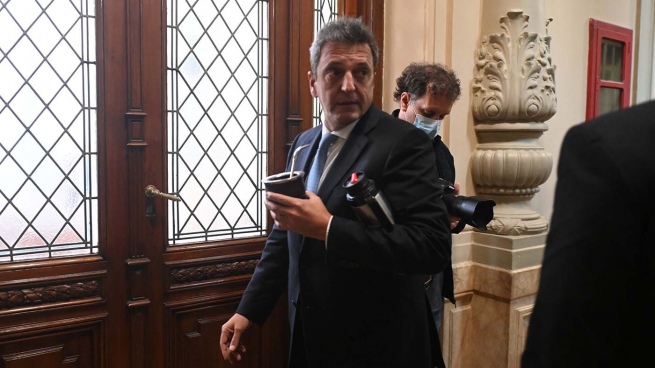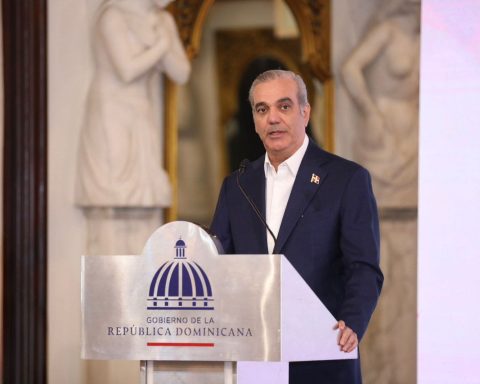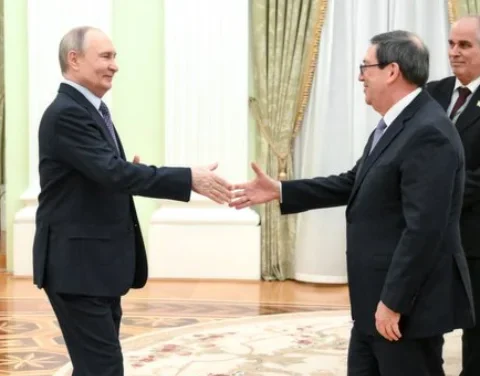UN High Commissioner for Human Rights Michelle Bachelet defended her controversial visit to China on Saturday, and urged authorities to avoid “arbitrary and indiscriminate” measures in Xinjiang, a region where Beijing is accused of widespread abuses.
Bachelet’s long-planned trip took her to the far western region, where China is accused of having detained more than a million Uyghurs and other Muslim minorities, as well as forced sterilizations.
The United States calls China’s actions in Xinjiang “genocide” and “crimes against humanity,” charges Beijing vehemently denies, saying its security measures are a necessary response to extremism.
Bachelet insisted on Saturday that her visit “is not an investigation.”
The UN official’s tour has drawn criticism from human rights groups and Uyghurs abroad.
After a video meeting that Bachelet had with President Xi Jinping, state media suggested that he supported the Chinese view of human rights.
But his office later clarified that his comments did not contain a direct endorsement of China’s record on human rights.
– Unattended access –
Bachelet viewed her visit as an opportunity to speak “frankly” with Chinese authorities, as well as civil society groups and academics.
“This visit was not an investigation,” he told reporters, insisting he had “unsupervised” access to the sources the UN had planned to meet in Xinjiang: the provincial Communist Party chief and security chiefs.
China claims it was forced to carry out “anti-terrorist” operations in Xinjiang, but human rights groups report detentions of entire communities, mainly Uyghurs, many of whom were unable to communicate with their families abroad for several years.
“We are aware of the number of people seeking news about the fate of their loved ones. This and other issues were raised with the authorities,” Bachelet said, declining to add details given the sensitivity of the issue.
This is the first trip to China by the highest authority of the UN on human rights in 17 years, and comes after arduous negotiations over the terms of his visit.
Bachelet urged China to avoid “indiscriminate arbitrary measures” in its crackdown in Xinjiang, but also said she recognized the damage caused by “violent acts of extremism.”
The High Commissioner visited the cities of Xinjiang, Urumqi and Kashgar, but no photos or further details were released.
Bachelet detailed visiting a prison in Kashgar, where she saw inmates, and an internal appeal court, describing her access as “quite open, quite transparent.”
He had been assured by the Xinjiang government that a network of “vocational training centers” – which rights groups say are forced re-education camps – “was dismantled,” he said, adding that he had visited a former re-education center.
The state media only echoed the meetings with Xi and Foreign Minister Wang Yi, during which the latter gave him a book with quotes from Xi on human rights.
UN High Commissioner for Human Rights Michelle Bachelet defended her controversial visit to China on Saturday, and urged authorities to avoid “arbitrary and indiscriminate” measures in Xinjiang, a region where Beijing is accused of widespread abuses.
Bachelet’s long-planned trip took her to the far western region, where China is accused of having detained more than a million Uyghurs and other Muslim minorities, as well as forced sterilizations.
The United States calls China’s actions in Xinjiang “genocide” and “crimes against humanity,” charges Beijing vehemently denies, saying its security measures are a necessary response to extremism.
Bachelet insisted on Saturday that her visit “is not an investigation.”
The UN official’s tour has drawn criticism from human rights groups and Uyghurs abroad.
After a video meeting that Bachelet had with President Xi Jinping, state media suggested that he supported the Chinese view of human rights.
But his office later clarified that his comments did not contain a direct endorsement of China’s record on human rights.
– Unattended access –
Bachelet viewed her visit as an opportunity to speak “frankly” with Chinese authorities, as well as civil society groups and academics.
“This visit was not an investigation,” he told reporters, insisting he had “unsupervised” access to the sources the UN had planned to meet in Xinjiang: the provincial Communist Party chief and security chiefs.
China claims it was forced to carry out “anti-terrorist” operations in Xinjiang, but human rights groups report detentions of entire communities, mainly Uyghurs, many of whom were unable to communicate with their families abroad for several years.
“We are aware of the number of people seeking news about the fate of their loved ones. This and other issues were raised with the authorities,” Bachelet said, declining to add details given the sensitivity of the issue.
This is the first trip to China by the highest authority of the UN on human rights in 17 years, and comes after arduous negotiations over the terms of his visit.
Bachelet urged China to avoid “indiscriminate arbitrary measures” in its crackdown in Xinjiang, but also said she recognized the damage caused by “violent acts of extremism.”
The High Commissioner visited the cities of Xinjiang, Urumqi and Kashgar, but no photos or further details were released.
Bachelet detailed visiting a prison in Kashgar, where she saw inmates, and an internal appeal court, describing her access as “quite open, quite transparent.”
He had been assured by the Xinjiang government that a network of “vocational training centers” – which rights groups say are forced re-education camps – “was dismantled,” he said, adding that he had visited a former re-education center.
The state media only echoed the meetings with Xi and Foreign Minister Wang Yi, during which the latter gave him a book with quotes from Xi on human rights.
;
















